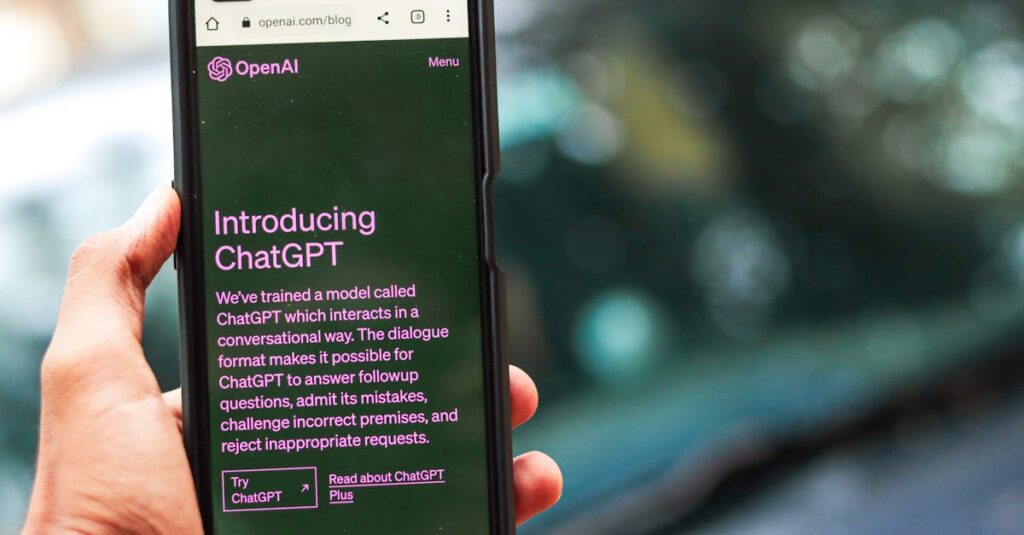Introduction
AI companions are no longer just a sci-fi dream or something you’d see in futuristic movies. They’re quickly becoming a part of our daily lives. From virtual assistants helping with mundane tasks to more advanced AI companions that provide emotional support, these technologies are becoming increasingly integrated into the fabric of our routines. But how exactly are AI companions making their way into everyday life? Let’s explore this fascinating shift together.
The Rise of Virtual Assistants: Our First AI Friends
Many people have already interacted with AI in the form of virtual assistants like Siri, Alexa, and Google Assistant. These tools have become so familiar that most of us don’t think twice about asking them to set reminders, play music, or give us the weather forecast. While these assistants can handle basic tasks, the next step is to build on that familiarity, turning these simple tools into more personalized, dynamic companions.
For example, imagine waking up to your assistant not just telling you the time but also asking how you slept and offering tips on how to improve your rest. Or having it help you manage not only your calendar but also your emotional well-being by suggesting relaxing activities based on your stress levels.
Virtual assistants have already paved the way for AI companions, and with continuous advancements in natural language processing, they’re becoming more intuitive and proactive. Before you know it, these assistants may not just be tools, but part of your inner circle of companions.
From Productivity to Personality
It’s easy to think of AI as simply a tool for productivity. But in many cases, AI is starting to show a more human side. Take chatbots in customer service, for example. They’re often designed to provide instant responses and solutions, but what sets some apart is their ability to develop a sense of personality. AI personalities are being crafted not just for efficiency, but to make the experience more engaging. Imagine chatting with a customer service bot that feels friendly, attentive, and even humorous, rather than one that just drones on with sterile responses.
AI for Emotional Support: The Next Step
One of the most profound shifts we’re seeing is AI companions that offer more than just practical assistance. There are now AI systems designed specifically to provide emotional support, especially for people who may feel isolated or lonely. These AI companions can listen to your problems, offer comforting words, or just be there when you need to talk.
Take Replika, for instance. It’s an AI chatbot designed to be your friend, ready to chat whenever you feel like it. Replika learns from your interactions, getting better at understanding your preferences, sense of humor, and mood. Over time, it can become more than just a sounding board, it can become a real emotional connection. Some users even report forming genuine bonds with their AI companions, describing them as being just as important as their human friends.
AI in Mental Health Care
In the realm of mental health, AI companions are making strides in offering therapeutic support. While they can’t replace human therapists, AI tools like Woebot have been developed to provide mental health support in a more accessible, on-demand format. These apps use cognitive behavioral therapy (CBT) techniques to help users cope with stress, anxiety, and depression. It’s a valuable option for those who may not have access to traditional therapy or who need a bit of help between sessions.
For instance, someone experiencing a panic attack could turn to an AI companion for calming exercises, breathing techniques, or just to talk it out. It’s not a perfect solution, but it’s a starting point that can offer real-time relief when it’s needed most.
AI Companions in the Home: A Personal Assistant Revolution
AI companions are also transforming the way we live at home. Smart home devices, already popular for controlling lights and thermostats, are now evolving to offer more personalized, helpful functions. For instance, AI-powered smart fridges can track your grocery habits, suggest meals based on what’s inside, and even create shopping lists for you.
Imagine coming home after a long day, and your smart home system asks if you’d like to unwind with your favorite TV show or play a relaxing playlist. These systems learn your preferences and adapt accordingly. Over time, they may even offer suggestions for activities that align with your emotional state, say, recommending a calming podcast if you’re feeling stressed or suggesting a favorite book if you’re in the mood to read.
AI Companions for Elderly Care
In addition to personal use, AI companions are becoming a game changer in elderly care. Many older adults, especially those living alone, are turning to AI-powered robots or digital assistants for companionship and assistance. These companions can help with daily tasks, offer reminders to take medications, or simply provide someone to talk to.
For example, ElliQ is a robot designed specifically for older adults. It uses AI to engage in conversation, remind users about important tasks, and even offer health tips. The beauty of such technology lies in its ability to bridge the gap for those who may feel disconnected or isolated in their later years. While ElliQ isn’t a replacement for human interaction, it certainly helps reduce loneliness and provides a sense of security for those in need.
Are We Ready for AI Companions in Our Lives?
The idea of AI companions may sound like something out of a sci-fi novel, but they’re already here, and rapidly advancing. From virtual assistants helping with tasks to AI bots offering emotional support, these companions are becoming more intelligent, personalized, and connected to our lives. However, with these advancements come new questions: Can AI truly understand human emotions? How will society navigate the ethical challenges of AI companionship? And how do we balance human connection with our reliance on machines?
As we welcome AI companions into our homes, workplaces, and hearts, it’s clear that they’ll continue to evolve. We may not have fully figured out how they’ll fit into our lives yet, but one thing is certain: AI companions are here to stay.
Conclusion
AI companions are more than just tools, they’re becoming part of the fabric of daily life, offering assistance, emotional support, and even companionship. As these technologies continue to improve, we’ll likely see even more creative and meaningful ways they can integrate into our routines. But like any technology, they raise important questions about human connection and the future of interaction. Will we learn to embrace AI as a trusted friend, or will we struggle with its role in our lives? Only time will tell, but one thing’s for sure, our relationship with AI is just beginning.

